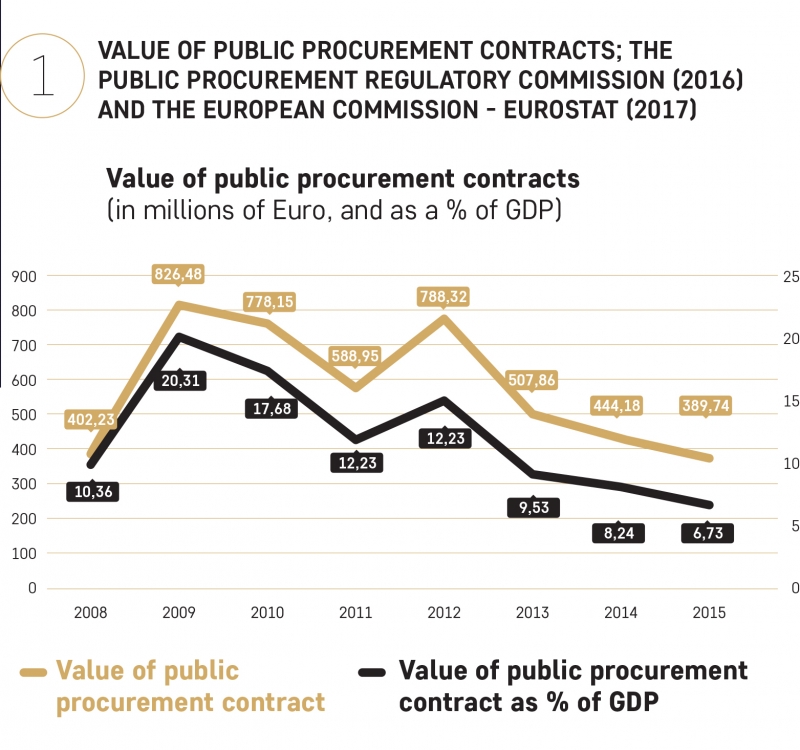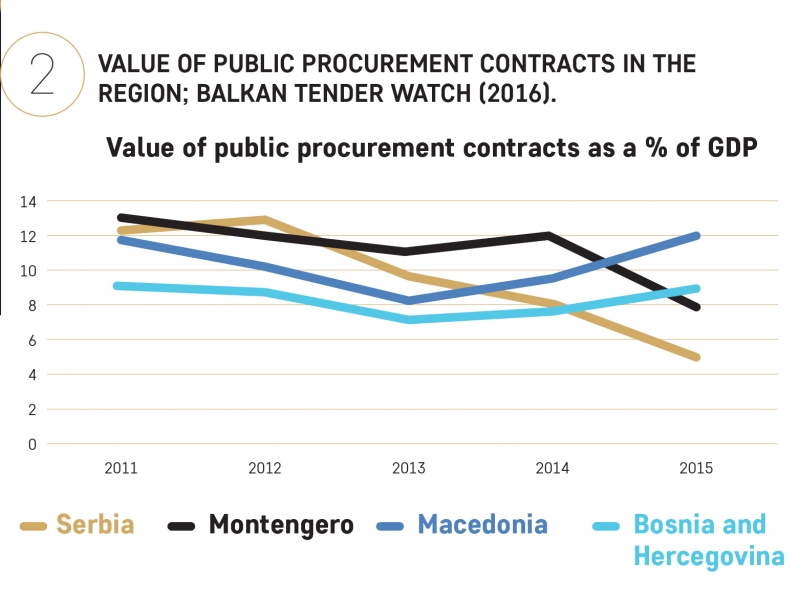Public procurement is the process that public institutions pursue to realize purchases of goods and services, mainly from the private sector. Public procurement makes a significant share of the economy. At certain times, public procurement in Kosovo has reached 1/5 of the value of GDP. Moreover, public procurement is a key process in ensuring responsible governance that supports a sustainable economic development.
As seen in Figure 1, from 2008 to 2015, there have been considerable fluctuations in the total value of public procurement contracts in Kosovo. The shifts were especially pronounced in the post-independence period, 2008-2012, when the value of public procurement switched from 10% to 20% of the GDP. Since 2012 and thereafter, there has been a continuous decline in the value of public procurement contracts, the lowest being 7% of GDP in 2015.

Relatively high public procurement projections in the economy are not unusual for both developing and developed countries. In fact, public procurement is an important share of the global economy (10-20%). Governments of the OECD countries spend on average about 12% of GDP in public procurement. Whereas the value of public procurement in France, the Netherlands, and Finland higher than 15% of GDP.
Countries of the region have similar experiences to Kosovo as well (Figure 2). In general there are strong fluctuations in the value of public procurement as a% of GDP. Moreover, in Bosnia and Herzegovina, there has also been a continuous decline in the value of public procurement down to 5% of GDP.

Still, the decline in the value of public procurement contracts is not necessarily an indicator of good management of the state budget. What makes successful public procurement is the strengthening of transparent practices. Earlier Riinvest studies have shown that only 80% of signed contracts go through open procedures. The biggest challenges to supporting transparency in public procurement arise from the fact that domestic (Kosovo and regional) institutions are mostly new in the fight against corruption. There is plenty of room for conflict of interest among politicians and businesses that are contracted by the government, and at the same time there is lack of technology integration in public procurement at central and local levels.
The significant value of public contracts executed through public procurement matters not only to get the best value for taxpayer money, but also to create an equitable environment where private companies can compete for these contracts. Consequently, the way this process is executed remains of particular importance.